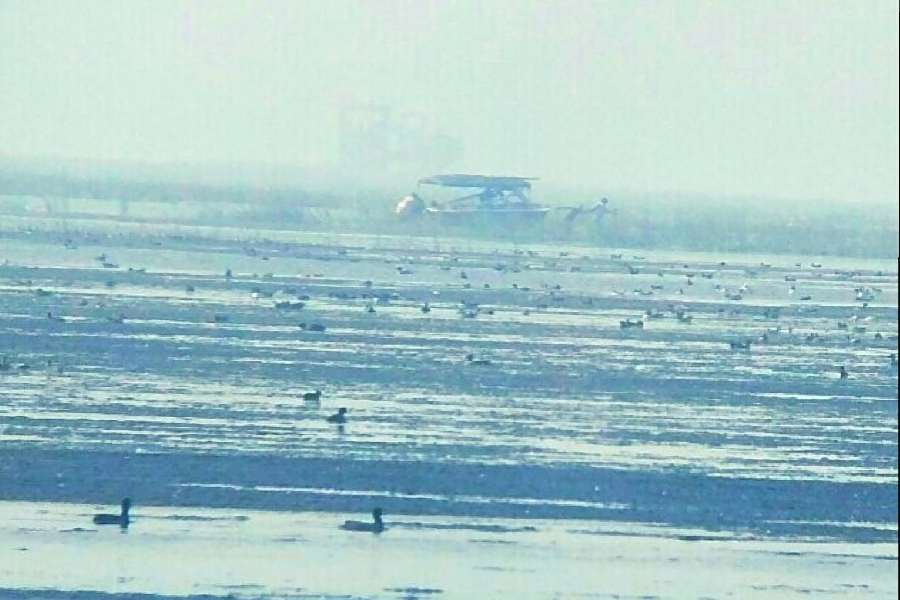Odisha remained the favourite destination for migratory birds coming from far-off destinations.
According to the bird census held recently, the number of migratory birds coming to Asia’s largest brackish water lagoon Chilika Lake and Bhitarkanika National Park has increased compared to last year.
The census at Chilika Lake was held on Thursday, while the one at Bhitarkanika was held on Saturday.
The Chilika Lake is spread over 1,100 square kilometres covering three districts of Odisha — Khurda, Ganjam and Puri. On the other hand, the Bhitarkanika sanctuary, spread over 145 square kilometres, is located in the Kendrapara district.
In the lake area, 11,37,759 birds comprising 187 species were spotted during the bird census. Out of that, 10,98,813 birds comprising 108 species were migratory birds and 38,946 birds comprising 79 species were resident birds of Chilika Lake.
Last year 11,31,929 birds of 184 species were spotted in the Chilika Lake. Out of it 10,93, 049 comprising 105 species were migratory and 38,880 birds comprising 79 species were resident birds. For the first time, one Pallas Fish eagle was spotted in the lake after a gap of 10 years.
On the other hand, more than 11,462 birds have reached the Bhitarkanika sanctuary this year compared to last year. While last year 1,39,959 birds had arrived in Bhitarkanika, this year the number of birds visiting the place reached 1,51,421.
While last year 120 species of birds had arrived, this year 121 species of birds reached the national park.
Citing the reasons for the increase in the number of birds, divisional forest officer (DFO) of Chilika Wildlife Division, Amlan Nayak, told The Telegraph: “Chilika Lake continues to remain a paradise for migratory birds for easy availability of food during the winter. They come from Siberia, Mongolia, China and the greater Himalayas. They start their return journey at the onset of summer.”
He also cited the demolition of the illegal prawn gheries as another reason for the increase in the number for the last few years, there has been an increase in the number of avian species in the lake.
The increase in the number of migratory birds visiting Chilika Lake can be attributed to the availability of open spaces after the eviction of illegal prawn gheries by the Chilika Development Authority.
“The evicted areas from the net gheries to the tune of 162sq km are not reconstructed and remain free. These areas have become the new places of congregation for the birds and the dolphin population.
“Areas like Gurubai and Parikuda etc have become Important Bird Areas (IBA) with the presence of a large number of migratory ducks and geese,” officials said.
Similar views were expressed by the officials of the Bhitarkanika sanctuary. “The easy food availability has led to the increase in the number of birds. We have also demolished the illegal gheries that create open space for
the birds,” divisional forest officer (DFO) Rajnagar, Sudarshan Yadav, told The
Telegraph.
For the first time, the officials used the EBird app. All the photos taken by the teams they sighted were uploaded on the app. “With this app, we will be able to identify new species of bird visiting the water bodies,” officials said.
In a related development, the three-day census of crocodiles at Bhitarkanika National Park will continue for three days from January 10. However, for the census, the national park would remain closed from January 5 to January 13 for tourists.











